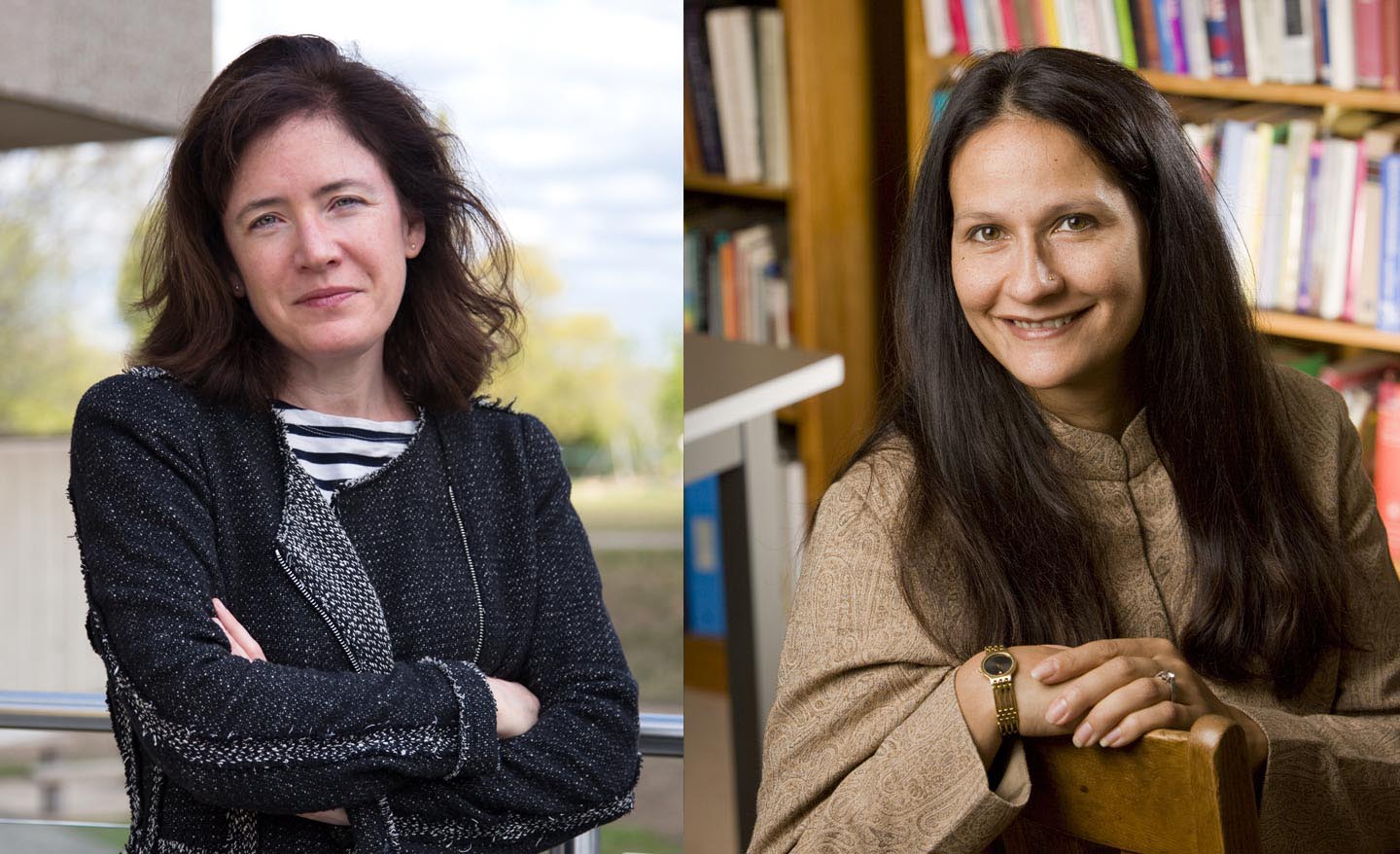Emigrant Empire and the Lady of the Forest
Professors Eileen Kane and Sufia Uddin have each been awarded fellowships from the National Endowment for the Humanities.
Associate Professor of History Eileen Kane and Professor of Religious Studies Sufia Uddin have each been awarded a $60,000 fellowship from the National Endowment for the Humanities. Kane will use the grant to research and write a book on Jewish and Muslim emigration from Russia to the Middle East from the 1840s to the 1940s, while Uddin will create a website about Hindu and Muslim traditions and ceremonies venerating the saint Bonbibi in the Sundarban island region of Bangladesh and India.
Kane, who serves as the director of Connecticut College’s Global Islamic Studies Program, is a historian of modern Europe interested in connections between Russia and the Middle East. In 2017, she received a $237,000 New Directions Fellowship from The Andrew W. Mellon Foundation to train in Middle East studies at Brown University, in order to investigate how large-scale migrations of both Muslims and Jews from Russia and the Soviet Union contributed to the formation of the modern Middle East.
“Between the 1840s and 1940s, more than a million Russian (and later Soviet) subjects migrated to the Middle East. These migrants transformed the places where they settled, but this history is under-researched and its implications for the present are poorly understood,” Kane said.
“I’m working to recover a history that has often been distorted for ideological and national agendas, by exploring how competing state and philanthropic institutions sought to limit, channel and instrumentalize these human migrations for their own purposes.”
Kane’s book, tentatively titled Emigrant Empire, will integrate the histories of Jewish and Muslim emigration from Russia to the Middle East, and expand the boundaries of standard histories of European migrants and refugees to include Muslim migrants and the Middle East.
Uddin specializes in constructions of the Bengali-Muslim religious community from the colonial to the contemporary period. Her work examines the many Bengali expressions of Islam and covers shared sacred space and religious elements common to both Bengali Hindus and Muslims, including the marginalized communities of Muslims and Hindus in the Sundarbans who share recognition and veneration of Bonbibi (The Lady of the Forest), whom they believe protects them from tigers. A central element of Bonbibi worship for both Muslims and Hindus is the recitation of “Jaharnama,” a 19th-century poem belonging to a Bengali Muslim genre known as puthi, which Uddin has translated.
With this grant, Uddin will create a website featuring audio and video recordings of “Jaharnama” recitations, video of a Bonbibi play, photographs of shrines, interviews with villagers, interactive maps and recorded forest sounds to give visitors the opportunity to enter the conceptual world of the people who created these practices.
“In the study of Indigenous religion, we know that the relationship of people to their natural world is central to understanding culture, and my study and translation of ‘Jaharnama’ illuminates the ways in which the Muslims and Hindus in the Sundarbans relate to the delicate natural environment in which they live,” Uddin said.
“This born-digital, web-based project will be accessible to those who are the subject of this study, students, scholars and anyone interested in environmental degradation and other issues. As they are in the Sundarbans, the forest, work, ritual and place will all be connected on the site.”
Kane and Uddin are two of only 99 scholars nationwide to receive NEH fellowships.
